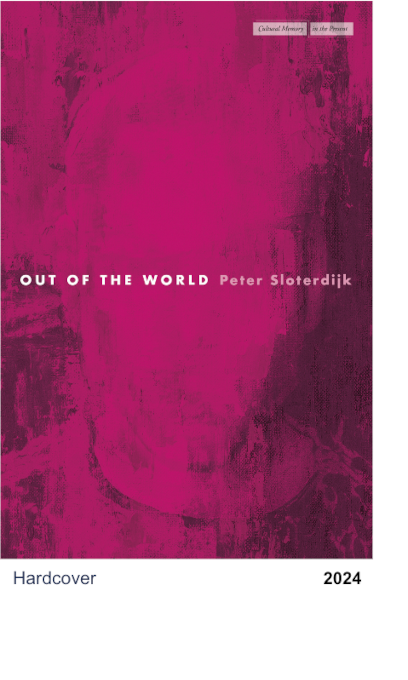 246 pages • Publisher Stanford University Press
246 pages • Publisher Stanford University Press
Translated by Corey A. Dansereau and Gill Zimmermann
Description
In this essential early work, the preeminent European philosopher Peter Sloterdijk offers a cross-cultural and transdisciplinary meditation on humanity’s tendency to refuse the world.
Developing the first seeds of his anthropotechnics, Sloterdijk theorizes consciousness as a medium, tuned and retuned over the course of technological and social history. His subject here is the „world-alien“ (Weltfremdheit) in man that was formerly institutionalized in religions, but is increasingly dealt with in modern times through practices of psychotherapy. Originally written in 1993, this almost clairvoyant work examines how humans seek escape from the world in cross-cultural and historical context, up to the mania and world-escapism of our cybernetic network culture. Chapters delve into artificial habitats and forms of intoxication, from early Christian desert monks to pharmaco-theology through psychedelics. In classic form, Sloterdijk recalibrates and reinvents concepts from the ancient Greeks to Heidegger to develop an astonishingly contemporary philosophical anthropology.
Reviews
„This is without question one of Sloterdijk’s most important works. Engaging European philosophy across the ages, as well as Indian, Chinese, and Japanese texts, this book takes up themes from his early works but is entirely new.“ —Eduardo Mendieta, Pennsylvania State University
„A remarkable book by one of the most formidable thinkers of our time. Incisive and acerbic, provocative and daring but with the calm confidence of Sloterdijk’s inimitable sense of style, this is a powerful, wonderful, essential read.“ —Stathis Gourgouris, Columbia University
„In an era that seems bogged down with flippant posthumanisms and unthinking assumptions about ‚the human,‘ Sloterdijk’s work is more important than ever. This book is a heroic venture into what it is to be a being who creates and ends the world.“ —Claire Colebrook, Pennsylvania State University